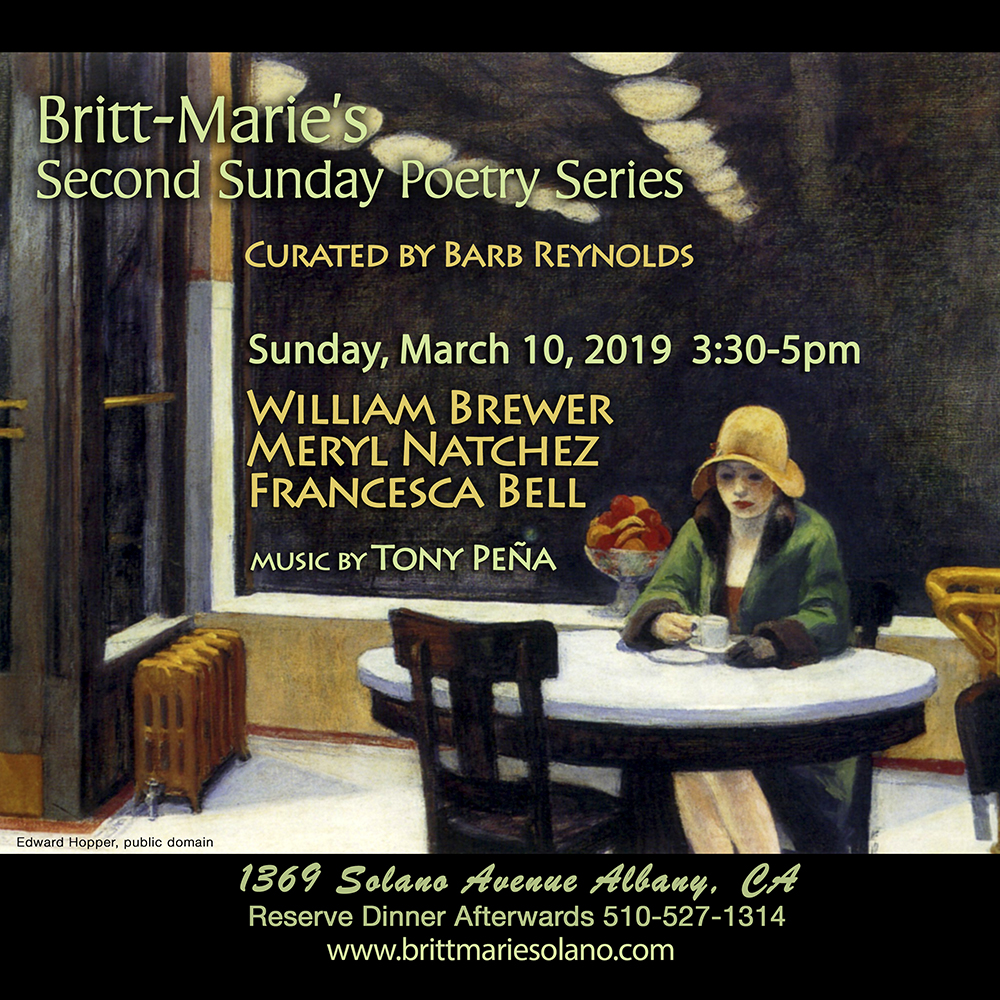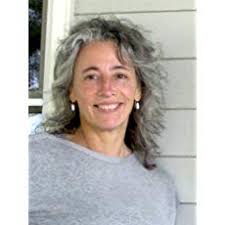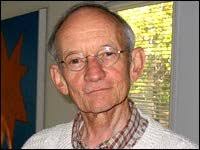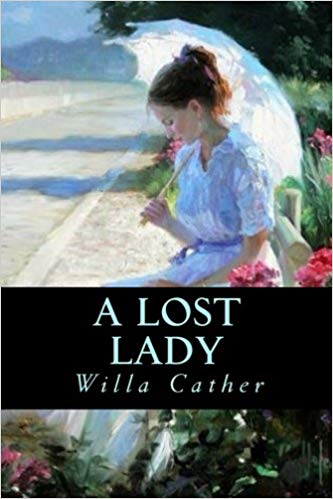I’m excited about this upcoming reading because I’m reading with two terrific poets in a very congenial setting, Britt Marie’s Wine Bar on Solano. Here are the details.

I’m excited about this upcoming reading because I’m reading with two terrific poets in a very congenial setting, Britt Marie’s Wine Bar on Solano. Here are the details.


Barbara Reynolds runs a reading series the second Sunday of the month at Britt Marie’s, a wine bar on Solano. I am reading there March 10th at 3:30. But here is Barb herself, speaking one of her poems. This is the first in a series of three.
If you are living with Larry, he might say to you from time to time, “I have something funny to show you.” And it will be very funny. Here was today’s offering, which you get to share just by reading this blog.

Ted Kooser was US Poet Laureate in 2004. His poems often deal with the farming communities of the midwest, like this one, which does a great job of capturing a moment and a perspective.
Above us, stars. Beneath us, constellations.
Five billion miles away, a galaxy dies
like a snowflake falling on water. Below us,
some farmer, feeling the chill of that distant death,
snaps on his yard light, drawing his sheds and barn
back into the little system of his care.
All night, the cities, like shimmering novas,
tug with bright streets at lonely lights like his.
Ted Kooser

I haven’t been able to do much in the garden since my encounter with the Land Rover, but this week I hired some help and we dug potatoes, weeded, spread compost and mulch. We left the parseley and a few onions.
Here is the first bed, ready for planting. Then the rains came and settled everything in. Soon this bed will have peas, lettuces and maybe a tomato or two.
Dorianne Laux just came out with a new book that I’m reading. Here’s a poem I really enjoyed
for Richard
Before the days of self service,
when you never had to pump your own gas,
I was the one who did it for you, the girl
who stepped out at the sound of a bell
with a blue rag in my hand, my hair pulled back
in a straight, unlovely ponytail.
This was before automatic shut-offs
and vapor seals, and once, while filling a tank,
I hit a bubble of trapped air and the gas
backed up, came arcing out of the hole
in a bright gold wave and soaked me — face, breasts,
belly and legs. And I had to hurry
back to the booth, the small employee bathroom
with the broken lock, to change my uniform,
peel the gas-soaked cloth from my skin
and wash myself in the sink.
Light-headed, scrubbed raw, I felt
pure and amazed — the way the amber gas
glazed my flesh, the searing,
subterranean pain of it, how my skin
shimmered and ached, glowed
like rainbowed oil on the pavement.
I was twenty. In a few weeks I would fall,
for the first time, in love, that man waiting
patiently in my future like a red leaf
on the sidewalk, the kind of beauty
that asks to be noticed. How was I to know
it would begin this way: every cell of my body
burning with a dangerous beauty, the air around me
a nimbus of light that would carry me
through the days, how when he found me,
weeks later, he would find me like that,
an ordinary woman who could rise
in flame, all he would have to do
is come close and touch me.
Dorianne Laux

I reread A Lost Lady this week. Inhaled it really. The characters are so vivid, as is the portrait of the farm towns of the prairies at the turn of the century. The great rail roads were built, and the settlers had come, but soon the chiselers and cheapskates would take the place of the larger than life figures who had created the original settlements. One of the characters is the Forrester homestead itself:
“Just at the foot of the hill on which the house sat, one crossed a second creek by the stout wooden road-bridge. This stream traced artless loops and curves through the broad meadows that were half pasture land, half marsh.”
“Any one but Captain Forrester would have drained the bottom land and made it into highly productive fields. But he had selected this place long ago because it looked beautiful to him, and he happened to like the way the creek wound through his pasture, with mint and joint-grass and twinkling willows along its bank. He was well off for those times, and he had no children. He could afford to humor his fancies.”
Mrs. Forrester, the lost lady of the title, is a winsome, engaging woman, the essence of grace and good taste. The story is told through the eyes of a young boy who looks up to her, finds in her the emblem of all that is elegant and delightful, and who grows up under her spell. He is present as Forrester loses his fortune by personally bankrolling a failed bank, the only one of the directors to come forward and save the depositors.
Later, he must rent the pasture land to an unscrupulous character, Ivy Peters: “Neil and Ivy had disliked each other from childhood, blindly, instinctively, recognizing each other through antipathy, as hostile insects do. By draining the marsh Ivy had obliterated a few acres of something he hated, though he could not name it, and had asserted his power over the people who had loved those unproductive meadows for their idleness and silvery beauty…
“The Old West had been settled by dreamers, great-hearted adventurers who were unpractical to the point of magnificence… Now all the vast territory they had won was to be at the mercy of men like Ivy Peters, who had never dared anything, never risk anything. They would drink up the mirage, dispel the morning freshness, root out the great brooding spirit of freedom, the generous, easy life of the great land-holders. The space, the colour, the princely carelessness of the pioneer they would destroy and cut up into profitable mats, as the match factory splinters the primeval forest.”
The lost lady of the title is not just Mrs. Forrester, but the west itself, described beautifully. Of course, the native population might feel the same about the”great-hearted adventurers,” but that’s a different book. This one is a gem of a portrait of a lost time.